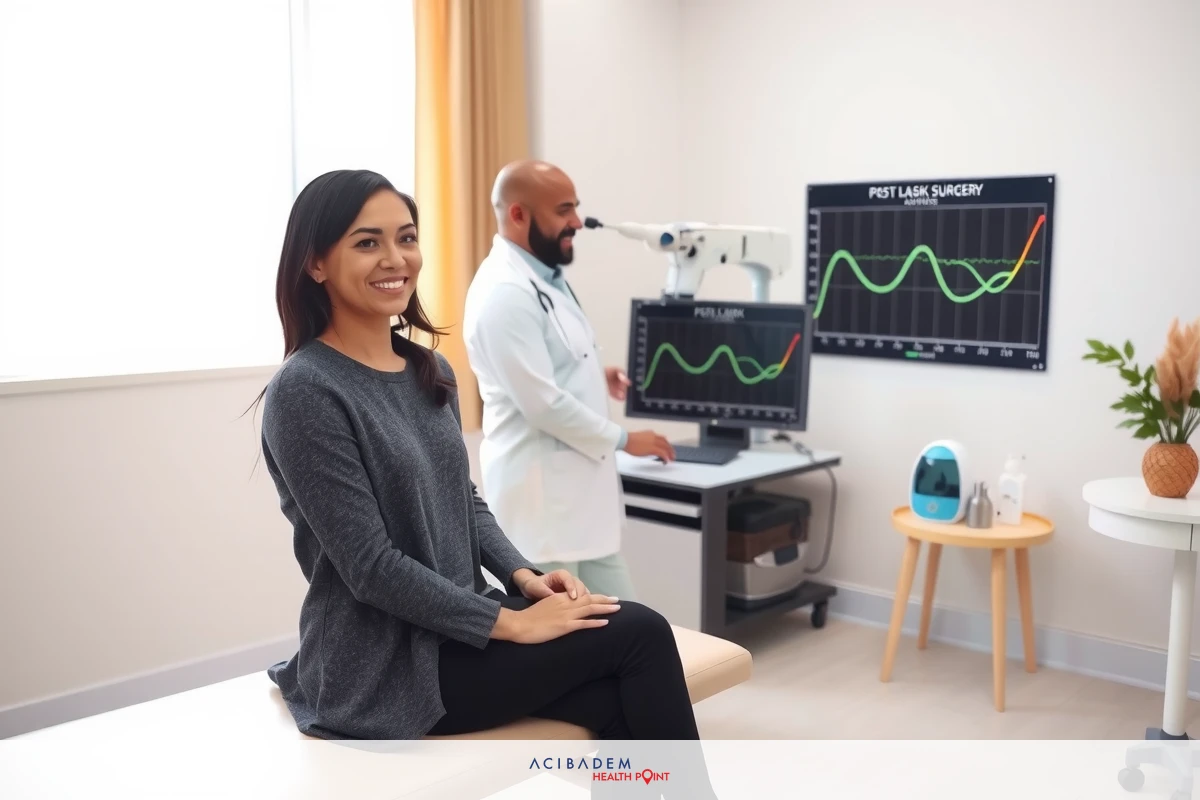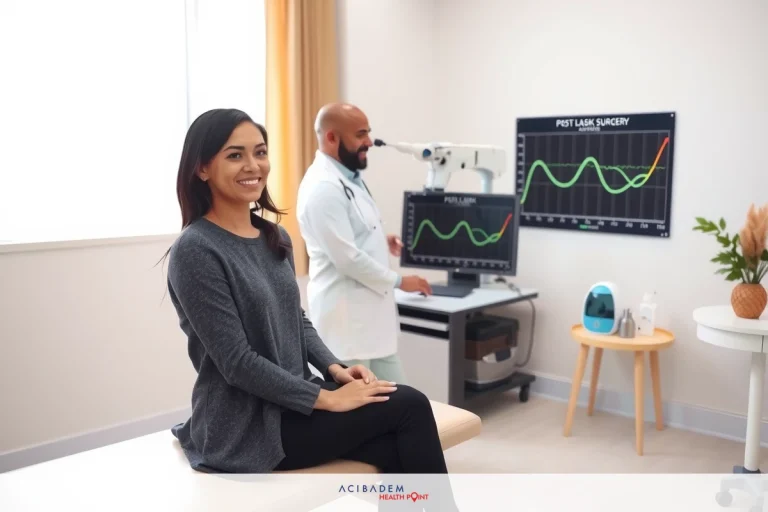Will My Routine Eye Exams Be Different After LASIK Surgery?
Will My Routine Eye Exams Be Different After LASIK Surgery? Navigating the waters of post-surgical care can often feel like a journey into uncharted territory. When it comes to routine eye exams following LASIK surgery, many patients find themselves questioning what changes they should anticipate. Is the process going to be different? What aspects remain unchanged? These are common queries that arise in one’s mind.
LASIK surgery, while renowned for its effectiveness in vision correction, may indeed bring about some modifications in how subsequent eye examinations are conducted. Contrary to popular belief, these alterations don’t necessarily complicate the process but rather adapt it to your new visual status. These differences demystifies any apprehensions and aids you in being proactive about your ocular health moving forward.
Post-Surgery Vision Checkup
The period following LASIK surgery is a crucial time. It’s during this interval that your eyes undergo significant healing and adjustment to the new, improved state of vision. Regular post-surgery checkups become an essential part of ensuring that this process proceeds smoothly and without complications. These routine eye exams play a critical role in monitoring your recovery progress, assessing visual acuity, and promptly identifying any potential issues.
Each eye exam after LASIK surgery is tailor-made to cater to the unique needs emerging from such a procedure. The main goal is always maintaining optimal eye health; these check-ups are not merely limited to validating the successful correction of refractive errors achieved through LASIK surgery. They include comprehensive assessments covering various aspects: intraocular pressure measurements, evaluation of corneal thickness and curvature alterations due to laser reshaping during LASIK, assessment for dry eyes – a
common temporary side effect post-LASIK – among others.
While changes are inevitable after undergoing such transformative procedures as LASIK surgery, they needn’t be alarming or burdensome. Embracing these shifts in routine eye examinations paves the way towards ensuring long-term visual satisfaction while keeping any potential problems at bay with early detection and timely intervention. Knowledge about what happens in these checks arms you with confidence as you navigate through your journey towards clearer sight – one vision checkup at a time.
Changes in Exam Procedures
After undergoing LASIK surgery, patients often wonder about the subsequent changes in their routine eye exams. This curiosity is valid as while the fundamental purpose of these assessments remains consistent ensuring optimal visual health. There are indeed alterations that occur in various procedures and tests.
- Corneal Topography: Post-LASIK, this becomes a standard part of your eye examination. The procedure maps out the cornea’s surface to detect irregularities, crucial for monitoring healing postsurgery.
- Dry Eye Assessment: Dry eyes are a common temporary side effect after LASIK surgery; hence regular evaluations become necessary until symptoms subside.
- Visual Acuity Test: While previously you may have struggled with reading those distant letters on the Snellen chart, post-LASIK examinations aim to confirm improved vision clarity achieved through surgery.
- Intraocular Pressure Measurement: Careful monitoring of intraocular pressure is essential to rule out any potential complications like glaucoma.
These additions or modifications aim at thorough checks tailored specifically for post-LASIK care needs and

should not be sources of concern but rather assurance towards maintaining excellent ocular health long-term.
Consulting Your Insurance Company
Insurance coverage often becomes a topic of discussion once LASIK surgery comes into the picture.
Navigating through these waters can seem daunting, especially when it concerns routine eye exams following the surgical procedure. It becomes essential to understand that while LASIK surgery itself might not always be covered by insurance, many companies offer coverage for subsequent regular check-ups.
Knowing your policy details is crucial in this context. Since different insurance providers have varying policies regarding post-LASIK care, consultation with your company is recommended to gain clarity on what services are covered and any potential out-of-pocket costs you may encounter. This could range from the inclusion of specific tests during your routine eye exam or a part of the overall cost being covered.
Managing one’s insurance coverage plays an integral role in ensuring continuous post-surgery care without financial burdens adding stress to the process. Clear communication with your insurer about all aspects related to routine eye exams after LASIK surgery enables proactive planning and fosters ease during each step towards achieving optimal visual health.
What Type of Light Is Used in LASIK Eye
Frequently Asked Questions
Q: How soon after LASIK surgery should I schedule my first post-surgery eye exam? A: Typically, your first check-up is scheduled within the initial 24 to 48 hours following the procedure. It’s advised to follow your surgeon’s specific recommendations.
Q: Will there be more frequent routine eye exams required post-LASIK? A: Initially, yes. It’s common for ophthalmologists to recommend a series of check-ups in the immediate weeks and months following LASIK surgery. As time passes and your eyes heal, these visits become less frequent eventually aligning with normal annual or bi-annual vision checks.
Q: Are there any additional tests during routine eye exams after LASIK surgery? A: Yes, there may be some additions like corneal topography and dry-eye assessment which are crucial for monitoring healing post-procedure. All modifications aim at ensuring optimal ocular health.
Q: What if I experience complications between regular eye exams following LASIK Surgery? A: Should you notice anything unusual like persistent pain or sudden changes in vision between regular checkups; seek urgent medical attention from an ophthalmologist without delay.
Please note that these answers are for informational purposes only and do not constitute medical advice.








